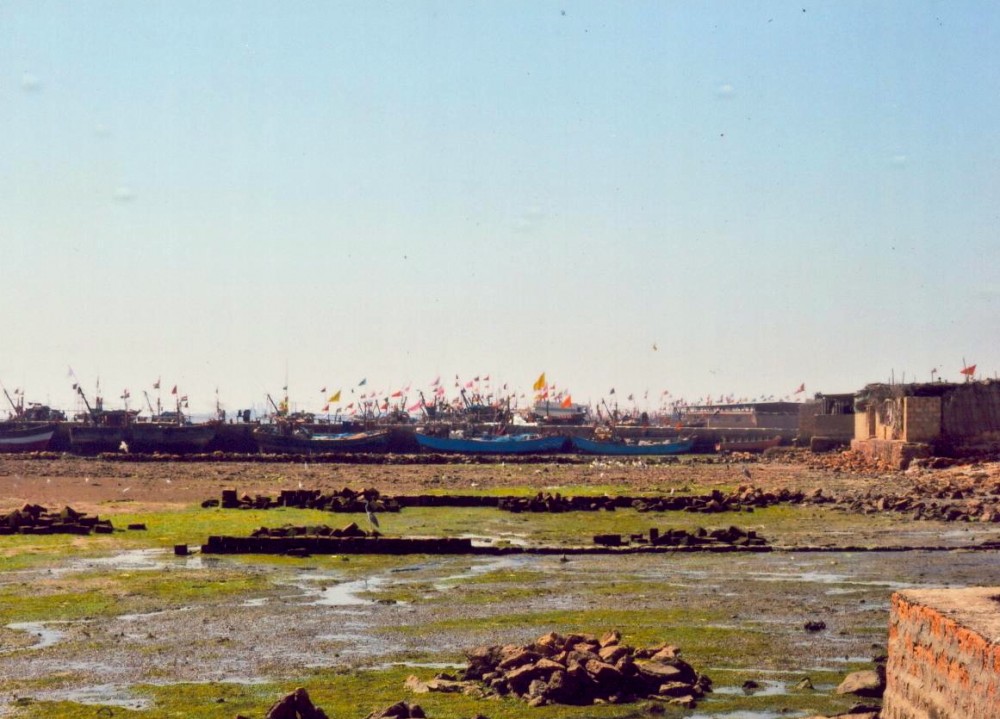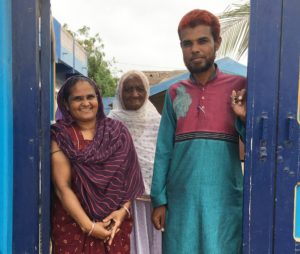Stories
One Fisherman’s Fight for Environmental Justice
Shakir Ahmad Bloch lives and works on the Jamnagar coast in the Gujarat state of India. Fishing is how he and many thousands of others in the state provide for their families. But what was once a secure livelihood is now one that is regularly in jeopardy.
The area has seen a significant influx in the number of business and development projects in recent years, including ports and thermal power plants. While such projects can result in growth for the region, they can also result in devastating losses if norms and regulations aren’t followed. A number of projects to date have failed to comply with environmental regulations and norms. They have damaged the coastal environmental and jeopardized the livelihoods of the fisherfolk as well as the health, living conditions, and access to public spaces of many community members.
The increasing threat of harmful projects propelled Shakir to becoming more active in the local chapters of groups like Machhimar Adhikar Sangharsh Sangathan (MASS), which in English means the “Organization for Fisherfolk’s Rights and Struggles”. He also participated in a training on coastal law held by the Centre for Policy Research (CPR) and Namati’s Environmental Justice program.
Shakir’s passion, leadership qualities, and keenness to learn and use the law caught the attention of one of the program managers, Bharat Patel. He invited the energetic activist for an interview. Namati’s India team was equally impressed with Shakir and invited him to join them as a grassroots legal advocate or, as they refer to the position, an Enviro-Legal Coordinator (ELC).
As an ELC, Shakir learned about the paralegal model they use to help community members understand their rights and take action to address the negative impacts of development projects. Alongside his Namati colleagues and his community clients, Shakir was able to secure spaces for fisherfolk to moor their boats, stop a chemical industry’s discharge of illegal effluent into the sea, and call for the enforcement of safety measures for the handling of coal at a nearby port.
Unfortunately, due to a family emergency Shakir was unable to continue as an Enviro-Legal Coordinator beyond 2015. However, he did not break his association with CPR-Namati or his commitment to protecting the rights of fisherfolk.
Shakir began to actively volunteer again with MASS, bringing the skills and knowledge he gained as an ELC with him. He shared what he learned with the group, including how to frame a problem statement that links a legal violation with the impact, how to generate evidence of violations, and how to write complaints with a clear description of the problem and the remedies sought. With these skills, MASS members have been able to seek resolutions from government offices to the problems they face when companies and development projects fail to comply with environmental regulations.
Earlier this year, for example, Shakir and other members of MASS learned that a fish supplier was constructing an illegal jetty on Dalda Bandar (harbor). The construction would block the fisherfolk’s current access point to the sea and the space they use to transfer their catch to the trucks that then take the goods to the market to be sold.
The group immediately put what they learned into action. They took photographs, gathered maps, and determined the GPS coordinates to serve as evidence of the illegal activities. They prepared to take the evidence, along with a formal written complaint, to the appropriate government offices, but upon hearing about the group’s activities, the supplier stopped the construction. The knowledge that an evidence-backed complaint was to be filed was persuasion enough.
Shakir credits CPR-Namati’s Environmental Justice program with the resolution: “We fishermen now know how to produce strong evidence of an illegal activity we see happening on the coast,” he explains.
“We used to raise noise about illegal activities earlier as well, but the evidence we used to produce – if [any] at all – would be weak. But now our evidence is foolproof. Earlier we would seldom hear back from the erring party or the government, but now we are seldom ignored.”
While Shakir continues to work with MASS to find resolutions to problems that have a clear legal hook in the coastal law, he is also working with CPR-Namati as a client on a case that will create wider, systemic change. A nearby port’s careless handling of Bauxite ore threatens the marine life in the area. Namati and its clients are using what they’ve learned at the grassroots level to highlight the need for a policy on the handling of Bauxite and provide suggestions for what such a policy should include.
In all his roles – be it community member, ELC, or client – Shakir has shown remarkable dedication not just to the pursuit of justice but to the empowerment of others so they may pursue it together. While he may not be an enviro-legal coordinator in name anymore, Shakir remains one in practice and at heart.


